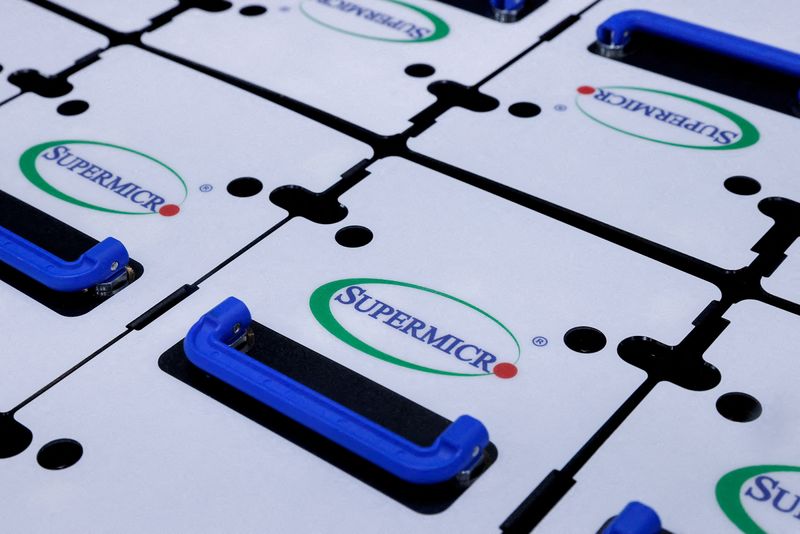After witnessing a meteoric rise last year, SMCI stock continued its outperformance in 2024, surging 168% as the unprecedented frenzy around generative AI continues and taking its market cap to a whopping $44.6 billion.
This week, KeyBanc Capital Markets analysts started coverage of Super Micro Computer (NASDAQ:SMCI) stock with a Neutral rating, yet still well positioned to benefit from AI secular growth trends.
SMCI - an AI winner
Alongside the biggest technology heavy hitters such as Microsoft (NASDAQ:MSFT) and Nvidia (NASDAQ:NVDA), Super Micro Computer is another name that has been frequently making headlines since the beginning of the current AI boom.
The single most important reason for this is the company’s unique positioning in the AI sector.
Specifically, the company makes high-end servers that play a key role in the ongoing expansion of the AI space. With demand for generative AI solutions going through the roof over the past year or so, the need for highly efficient servers has also increased.
Recognizing those trends, investors jumped on the SMCI stock, sending its value soaring by nearly 250% in 2023.
On top of this, Super Micro has close ties with AI darling Nvidia, helping the company roll out its products faster than rivals like Dell Technologies (NYSE:DELL) and HP (NYSE:HPQ).
According to analysts and industry experts, Super Micro has consistently been among the first to receive AI chips from Nvidia and AMD (NASDAQ:AMD), which aids in the testing of server prototypes.
This early access has given the company a competitive advantage, helping it become a key supplier of servers critical for generative AI applications.
Located less than 10 miles from the California headquarters of Nvidia and AMD, Super Micro is reportedly able to "manufacture, assemble, test and ship a server rack" within just "a few weeks," provided that the necessary components are available.
It is estimated that SMCI holds a 9% share of the total end-user spending server market, encompassing both General Purpose (GP) servers and AI servers.
For the AI server segment specifically, analysts at KeyBanc Capital Markets project that Super Micro commands a leading 23% market share. This is followed by Wiwynn, which holds a 9% share and focuses exclusively on the hyperscaler market.
KeyBanc sees balanced risk reward for SMCI stock
On Tuesday, KeyBanc analysts released a note announcing they have started research coverage of the SMCI stock with a Sector Weight rating.
The analysts believe that the AI server maker is favorably positioned “to benefit from secular AI growth trends provided its ability to deliver highly customized full IT solutions leveraging its in-house engineering design expertise based on latest technology ( in the fastest, most efficient manner, in our view.”
“This opportunity set may extend as AI becomes more pervasive over time driving the theme of accelerated computing where relative bespoke GPU-based solutions and other and non-x86 solutions take share” in what Jensen Huang, Nvidia CEO, has recently described as a $1 trillion installed base opportunity.
KeyBanc said that Super Micro’s 23% share in the AI server market is bolstered by the company’s competitive advantages that are expected to sustain or even expand this market share in the future.
They note that AI-related rack-scale revenues likely constituted about 70% of the company's revenue in the December 2023 quarter.
The analysts also point out that while other OEMs are making headway, the market could grow beyond current projections if AI-driven demands increase the use of GPU-based computing over traditional CPUs. This scenario could arise particularly in bullish situations where there is accelerated development in compute infrastructure.
In the long run, as AI usage and benefits grow, the need for customized IT infrastructure for accelerated computing at cloud service providers (CSPs) and enterprises could expand the total addressable market (TAM), supporting strong growth and bullish scenarios for SMCI shares, KeyBanc noted.
Primary risks for SMCI stock include supply chain constraints, GPU pricing, competitive pricing, execution challenges in capacity expansion, potential decreases in demand or double ordering, limited AI/GenAI use cases, and unfavorable macroeconomic factors, analysts highlighted.
